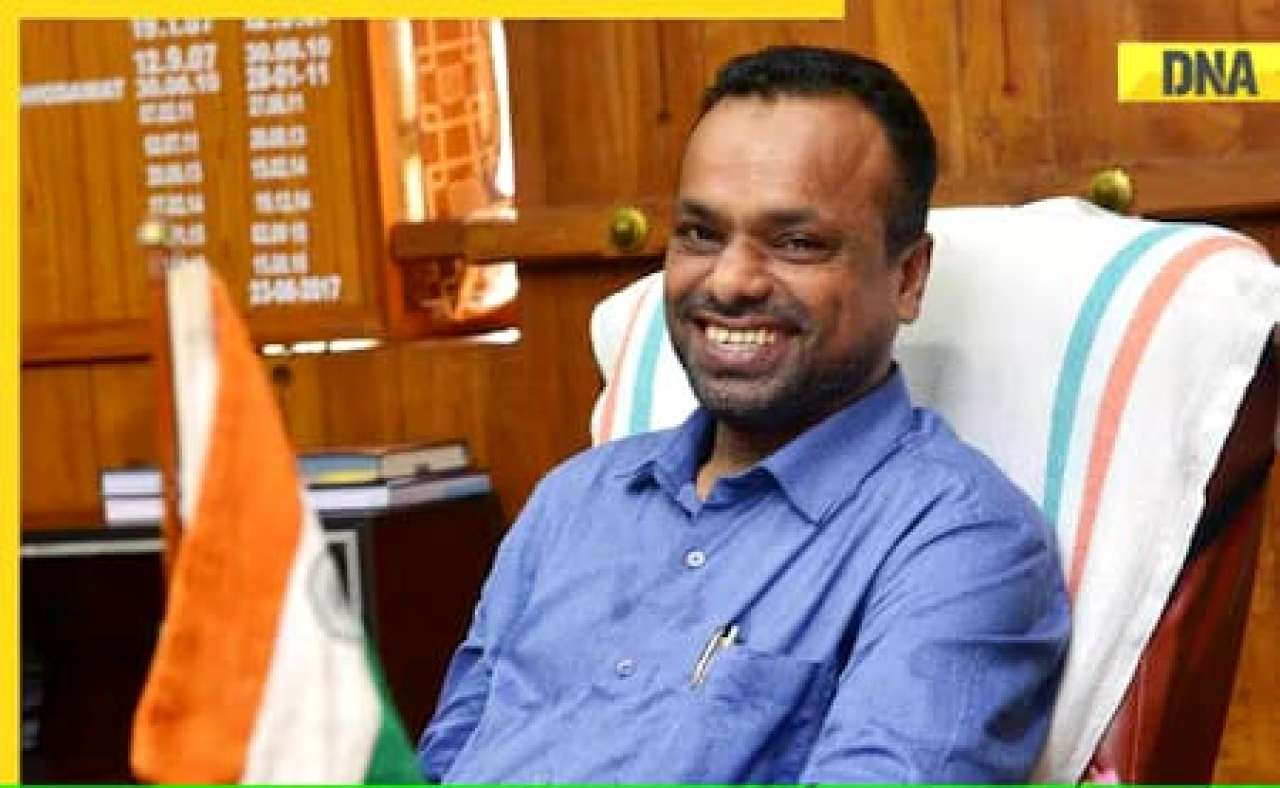The firm aims to allow individuals with the implant to control robotic arms and electric wheelchairs using their thoughts.
While Elon Musk and the Neuralink team are attempting to obtain FDA approval to test their Neuralink BCIs on humans and have them authorised for medical usage, US company have surpassed them and implanted 50 chips successfully into people's brains. The NeuroPort Array was developed by Blackrock Neurotech, a firm whose scientists are confident that it would significantly improve the quality of life for people with depression, paralysis, and other illnesses.
The company wants to make it possible for people with the implant to steer robotic arms and powered wheelchairs by using their thoughts. According to Blackrock Neurotech co-founder Marcus Gerhardt, "We are the only company with direct-brain BCI implants in humans." He continued by saying that the company's implantable arrays enable users to communicate directly with computers, operate wheelchairs and robotic arms, play video games, and even regain sensation by utilising only brain impulses.
The device reads the electrical signals produced by the implanted person's brain using 100 tiny needles to access their thoughts.
The implant then records these signals and applies machine learning to interpret them. Blackrock Neurotech will need FDA permission for use in the general public before it can incorporate the implant into tools and enhance people's lives. According to Marcus Gerhardt, the main goal of this medical equipment is to increase the independence and movement of paralysed people, which will subsequently enhance their quality of life.
Gerhardt added that people can create new lives with BCIs for home usage that were previously thought to be impractical because of their disability. The implant will let people get back to work, gain more freedom, and interact with the outside world in fresh and significant ways.
Due to his involvement in a serious vehicle accident in 2004, Nathan Copeland, who received the implant in 2014, is a pioneer in this technology. Copeland, who had a catastrophic spinal injury, was able to get sensory feedback via intracortical microstimulation thanks to the implant, according to the Blackrock Neurotech website. Copeland claimed that because of his accident, which limited his ability to move about and engage with his surroundings, using the implant was a highly fulfilling and thrilling experience.
However, this discovery is an indication of major advancements in this field. As a result, those who deal with severe disabilities and other difficulties might live longer and with a higher quality of life.
![submenu-img]() This film was made on taboo subject, yet earned five times its budget, marked lead actors' debut, won 3 National Awards
This film was made on taboo subject, yet earned five times its budget, marked lead actors' debut, won 3 National Awards![submenu-img]() SL vs SA T20 World Cup 2024: Predicted playing XIs, live streaming details, weather and pitch report
SL vs SA T20 World Cup 2024: Predicted playing XIs, live streaming details, weather and pitch report![submenu-img]() Amul Milk price hiked by Rs 2 per litre across India, check new rates here
Amul Milk price hiked by Rs 2 per litre across India, check new rates here![submenu-img]() Maldives bans entry of Israeli passport holders in 'solidarity with Palestine'
Maldives bans entry of Israeli passport holders in 'solidarity with Palestine'![submenu-img]() Not Suniel Shetty, but this actor was playing Dev in Dhadkan, he later replaced action star from Sunny Deol's...
Not Suniel Shetty, but this actor was playing Dev in Dhadkan, he later replaced action star from Sunny Deol's...![submenu-img]() Meet man who grew up in orphanage, began working at 10 as cleaner, delivery boy, then became IAS officer, is posted at..
Meet man who grew up in orphanage, began working at 10 as cleaner, delivery boy, then became IAS officer, is posted at..![submenu-img]() Meet UPSC topper who cleared JEE Advanced, went to IIT Kanpur, left high-paying job to become IPS officer, secured AIR..
Meet UPSC topper who cleared JEE Advanced, went to IIT Kanpur, left high-paying job to become IPS officer, secured AIR..![submenu-img]() Meet woman who cracked UPSC exam twice, left IPS to become an IAS officer, secured AIR...
Meet woman who cracked UPSC exam twice, left IPS to become an IAS officer, secured AIR...![submenu-img]() Meet woman, one of India’s youngest IAS officers who cracked UPSC in 1st attempt at 22 without coaching, her AIR was...
Meet woman, one of India’s youngest IAS officers who cracked UPSC in 1st attempt at 22 without coaching, her AIR was...![submenu-img]() Meet JEE Main topper with AIR 4, plans to pursue BTech from IIT Bombay, he is from...
Meet JEE Main topper with AIR 4, plans to pursue BTech from IIT Bombay, he is from...![submenu-img]() DNA Verified: Did Kangana Ranaut party with gangster Abu Salem? Actress reveals who's with her in viral photo
DNA Verified: Did Kangana Ranaut party with gangster Abu Salem? Actress reveals who's with her in viral photo![submenu-img]() DNA Verified: New Delhi Railway Station to be closed for 4 years? Know the truth here
DNA Verified: New Delhi Railway Station to be closed for 4 years? Know the truth here![submenu-img]() DNA Verified: Did RSS chief Mohan Bhagwat praise Congress during Lok Sabha Elections 2024? Know the truth here
DNA Verified: Did RSS chief Mohan Bhagwat praise Congress during Lok Sabha Elections 2024? Know the truth here![submenu-img]() DNA Verified: Is CAA an anti-Muslim law? Centre terms news report as 'misleading'
DNA Verified: Is CAA an anti-Muslim law? Centre terms news report as 'misleading'![submenu-img]() DNA Verified: Lok Sabha Elections 2024 to be held on April 19? Know truth behind viral message
DNA Verified: Lok Sabha Elections 2024 to be held on April 19? Know truth behind viral message![submenu-img]() Inside pics from Anant Ambani-Radhika Merchant's bash: Shah Rukh with new hairstyle, Sid-Kiara's private moment, & more
Inside pics from Anant Ambani-Radhika Merchant's bash: Shah Rukh with new hairstyle, Sid-Kiara's private moment, & more![submenu-img]() Streaming This Week: Panchayat season 3, Swatantrya Veer Savarkar, Illegal season 3, latest OTT releases to binge-watch
Streaming This Week: Panchayat season 3, Swatantrya Veer Savarkar, Illegal season 3, latest OTT releases to binge-watch![submenu-img]() Avneet Kaur shines in navy blue gown with shimmery trail at Cannes 2024, fans say 'she is unstoppable now'
Avneet Kaur shines in navy blue gown with shimmery trail at Cannes 2024, fans say 'she is unstoppable now'![submenu-img]() Assamese actress Aimee Baruah wins hearts as she represents her culture in saree with 200-year-old motif at Cannes
Assamese actress Aimee Baruah wins hearts as she represents her culture in saree with 200-year-old motif at Cannes ![submenu-img]() Aditi Rao Hydari's monochrome gown at Cannes Film Festival divides social media: 'We love her but not the dress'
Aditi Rao Hydari's monochrome gown at Cannes Film Festival divides social media: 'We love her but not the dress'![submenu-img]() Lok Sabha Elections 2024: What are exit polls? When and how are they conducted?
Lok Sabha Elections 2024: What are exit polls? When and how are they conducted?![submenu-img]() DNA Explainer: Why was Iranian president Ebrahim Raisi, killed in helicopter crash, regarded as ‘Butcher of Tehran’?
DNA Explainer: Why was Iranian president Ebrahim Raisi, killed in helicopter crash, regarded as ‘Butcher of Tehran’?![submenu-img]() DNA Explainer: Why did deceased Iranian President Ebrahim Raisi wear black turban?
DNA Explainer: Why did deceased Iranian President Ebrahim Raisi wear black turban?![submenu-img]() Iran President Ebrahim Raisi's death: Will it impact gold, oil prices and stock markets?
Iran President Ebrahim Raisi's death: Will it impact gold, oil prices and stock markets?![submenu-img]() Haryana Political Crisis: Will 3 independent MLAs support withdrawal impact the present Nayab Saini led-BJP government?
Haryana Political Crisis: Will 3 independent MLAs support withdrawal impact the present Nayab Saini led-BJP government?![submenu-img]() This film was made on taboo subject, yet earned five times its budget, marked lead actors' debut, won 3 National Awards
This film was made on taboo subject, yet earned five times its budget, marked lead actors' debut, won 3 National Awards![submenu-img]() Not Suniel Shetty, but this actor was playing Dev in Dhadkan, he later replaced action star from Sunny Deol's...
Not Suniel Shetty, but this actor was playing Dev in Dhadkan, he later replaced action star from Sunny Deol's...![submenu-img]() Malaika Arora shares cryptic post amid breakup rumours with Arjun Kapoor: 'When they say you can't...'
Malaika Arora shares cryptic post amid breakup rumours with Arjun Kapoor: 'When they say you can't...'![submenu-img]() Sanjeeda Shaikh recalls shocking incident when a woman groped her: 'She just touched my breast, ladkiyaan bhi koi...'
Sanjeeda Shaikh recalls shocking incident when a woman groped her: 'She just touched my breast, ladkiyaan bhi koi...'![submenu-img]() Adah Sharma opens up on living in Sushant Singh Rajput's house: 'The place gives me...'
Adah Sharma opens up on living in Sushant Singh Rajput's house: 'The place gives me...'![submenu-img]() Radhika Merchant, Anant Ambani's first look from their 2nd pre-wedding in Italy goes viral
Radhika Merchant, Anant Ambani's first look from their 2nd pre-wedding in Italy goes viral![submenu-img]() MrBeast beats T-Series to become most subscribed YouTuber, followers reached...
MrBeast beats T-Series to become most subscribed YouTuber, followers reached...![submenu-img]() Terrifying encounter: Mama elephant battles crocodile to protect her calf, video goes viral
Terrifying encounter: Mama elephant battles crocodile to protect her calf, video goes viral![submenu-img]() Pawsitively adorable: Viral video shows real-life Tom & Jerry cuddling after cute catfight
Pawsitively adorable: Viral video shows real-life Tom & Jerry cuddling after cute catfight![submenu-img]() Meet Chillikompan, the mango-loving tusker from Kerala
Meet Chillikompan, the mango-loving tusker from Kerala







































)
















)
)
)
)
)
)